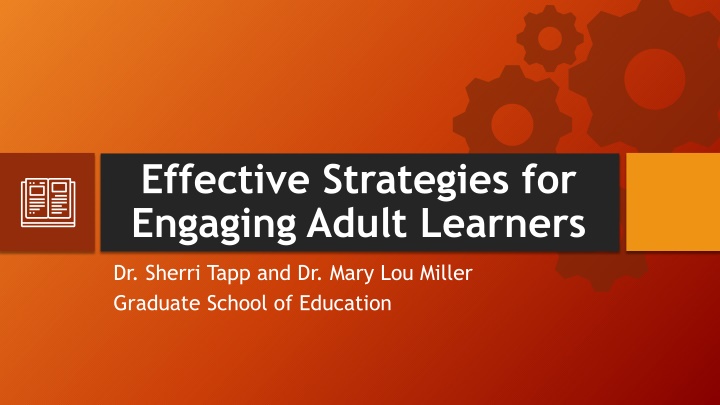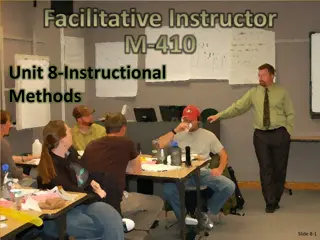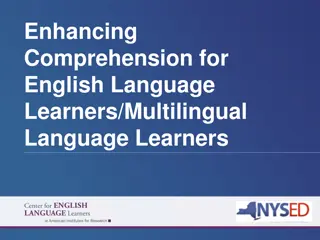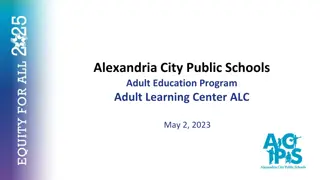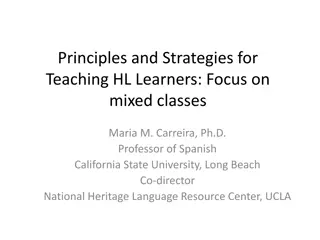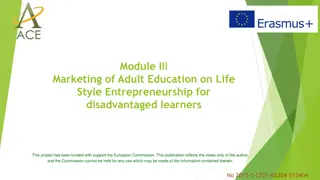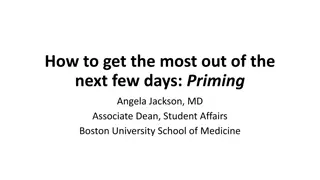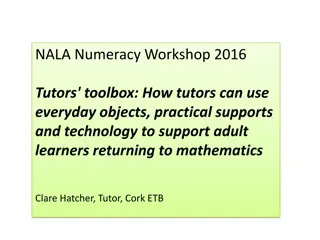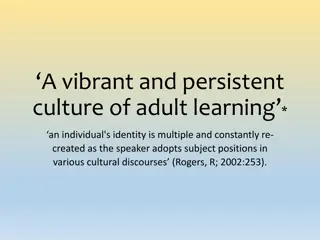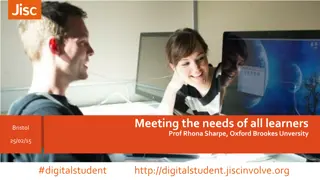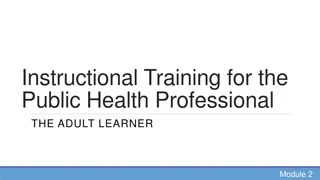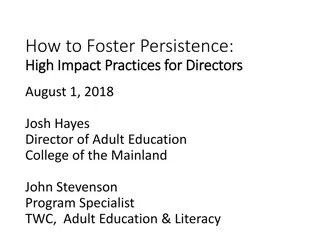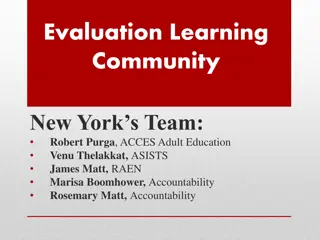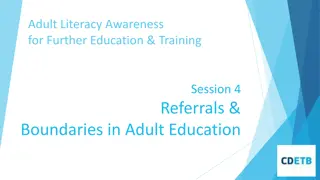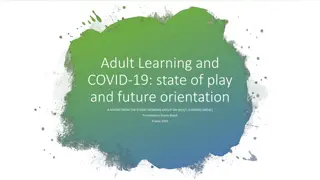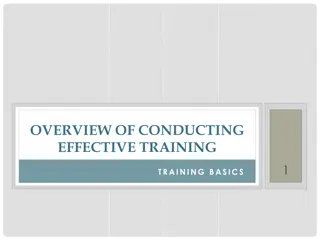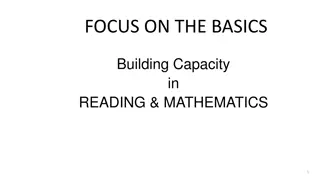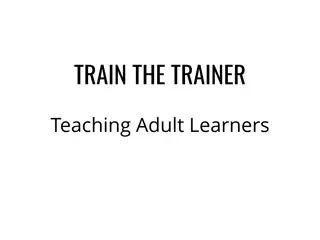Effective Strategies for Engaging Adult Learners
Discover the principles of andragogy - the theory of adult learning, focusing on how adults learn differently from children. Explore the five assumptions about adult learners according to Knowles, such as their self-concept, past learning experiences, readiness to learn, practical reasons for learning, and internal motivation. Enhance your understanding of how to effectively engage adult learners in educational settings.
Download Presentation

Please find below an Image/Link to download the presentation.
The content on the website is provided AS IS for your information and personal use only. It may not be sold, licensed, or shared on other websites without obtaining consent from the author.If you encounter any issues during the download, it is possible that the publisher has removed the file from their server.
You are allowed to download the files provided on this website for personal or commercial use, subject to the condition that they are used lawfully. All files are the property of their respective owners.
The content on the website is provided AS IS for your information and personal use only. It may not be sold, licensed, or shared on other websites without obtaining consent from the author.
E N D
Presentation Transcript
Effective Strategies for Engaging Adult Learners Dr. Sherri Tapp and Dr. Mary Lou Miller Graduate School of Education
ANDRAGOGY ADULT LEARNING THEORY Andragogy a theory of adult learning that details some of the ways in which adults learn differently than children For example, adults tend to be more self-directed, internally motivated, and ready to learn
Knowles Five Assumptions of Adult Learners Knowles theory of andragogy identified five assumptions that teachers should make about adult learners
Knowles Five Assumptions of Adult Learners 1. Self-Concept Because adults are at a mature developmental stage, they have a more secure self-concept than children. This allows them to take part in directing their own learning.
Knowles Five Assumptions of Adult Learners 2. Past Learning Experience Adults have a vast array of experiences to draw on as they learn, as opposed to children who are in the process of gaining new experiences.
Knowles Five Assumptions of Adult Learners 3. Readiness to Learn Many adults have reached a point in which they see the value of education and are ready to be serious about and focused on learning.
Knowles Five Assumptions of Adult Learners 4. Practical Reasons to Learn Adults are looking for practical, problem-centered approaches to learning. Many adults return to continuing education for specific practical reasons, such as entering a new field.
Knowles Five Assumptions of Adult Learners 5. Driven by Internal Motivation While many children are driven by external motivators such as punishment if they get bad grades or rewards if they get good grades adults are more internally motivated
Four Principles of Andragogy Based on the five assumptions about adult learners, Knowles discussed four principles that educators should consider when teaching adults
Four Principles of Andragogy 1. Since adults are self-directed, they should have a say in the content and process of their learning
Four Principles of Andragogy 2. Because adults have so much experience to draw from, their learning should focus on adding to what they have already learned in the past
Four Principles of Andragogy 3. Since adults are looking for practical learning, content should focus on issues related to their work or personal life.
Four Principles of Andragogy 4. Additionally, learning should be centered on solving problems instead of memorizing content.
REFERENCE https://www.learning-theories.com/andragogy-adult- learning-theory-knowles.html
